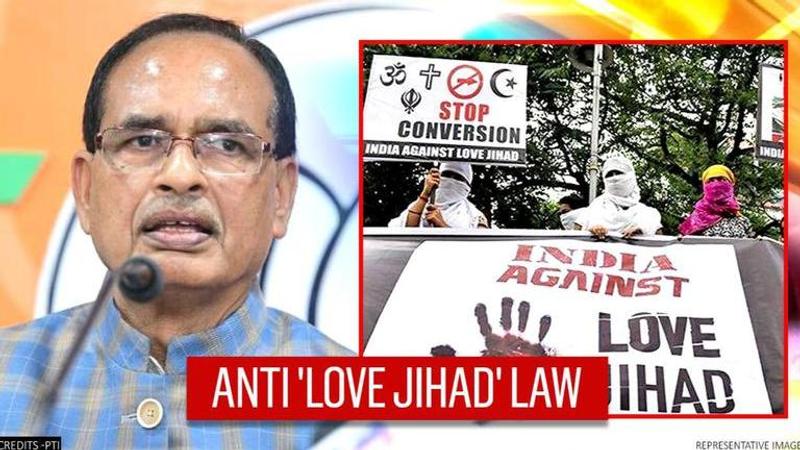Published 12:01 IST, December 26th 2020
MP cabinet approves Freedom of Religion Bill 2020; min 2-10 years jail term for violators
The bill aims to prevent conversion by marriage and also seeks to prohibit religious conversion by financial 'allurement', fraudulent, and forceful means.

The Madhya Pradesh Cabinet on Saturday has approved the 'MP Freedom to Religion Bill, 2020'. The new law nullifies the Dharma Swatantrya Adhiniyam law of 1968. The bill aims to prevent conversion by marriage. In addition, the bill also seeks to prohibit religious conversion by financial 'allurement', fraudulent, and forceful means. The cabinet meeting was chaired by Madhya Pradesh Chief Minister Shivraj Singh Chouhan.
MP cabinet approves 'anti-Love Jihad' bill
According to Madhya Pradesh's Home Minister Narottam Mishra, the new Religious Freedom bill has 19 clauses. In addition, he also added that forceful conversions will attract a minimum penalty of Rs 25,000 and imprisonment of 1-5 years. Moreover, Mishra also added that forced conversion of a minor woman or a person from Scheduled Caste or Scheduled Tribe, would draw a minimum jail term of 2-10 years with a minimum penalty of Rs 50,000. Here are the complete aspects of the Religious Freedom Bill:
- In the case of religious conversion, the affected person or his/her parents or blood relatives can file a complaint.
- The offence will be cognizable, non-bailable, and can be taken up by the Sessions Court.
- Such a case can be investigated only by a police officer of Sub Inspector rank or above.
- The burden of proving that the conversion has not been done by force will be on the accused.
- Marriage conducted with the intention of conversion will be considered null and void.
- No person can attempt to abet or conspire religious conversion.
- If a person wants to convert to another religion, he/she has to submit a letter of declaration to the District Magistrate one month in advance.
- For violating Section 3, an individual faces imprisonment of 1-5 years and a fine of not less than Rs.25,000.
- If the victim is a minor, woman, or belongs to SC/ST, the guilty can be punished with 2-10 years imprisonment besides a minimum fine of Rs.50,000.
- An attempt to hide one's religion will be punishable by imprisonment of 3-10 years and a fine of at least Rs.50,000.
- Attempting mass religious conversions (of two or more persons) will attract imprisonment of 5-10 years and a fine of at least Rs.1 lakh.
UP's 'Love Jihad' law
The Uttar Pradesh government had already passed the 'Prohibition of Unlawful Conversion Bill 2020' on November 28. The law does not specifically mention the term 'love jihad' or defines it. Even so, it makes forceful religious conversion, including through marriage, punishable with a jail term of 1-5 years with Rs.15,000 penalty. Moreover, if the woman is a minor or belongs to Scheduled Caste or Scheduled Tribe, the jail term will be between 3-10 years and the penalty upto Rs.25,000. The law also punishes mass conversions with a jail term iof 3-10 years and fine of Rs.50,000 on the organisations conducting it. A day after the law was passed in UP, an FIR was filed against a man for allegedly tricking a girl into marriage for the purpose of converting her religion. This was the first case registered against 'Love Jihad' in the country
What is 'Love Jihad'?
Love Jihad is a term referring to an alleged campaign by Muslim men to convert Hindu girls under the pretext of love. NCW chairperson Rekha Sharma has often claimed that Kerala has 'rampant' love jihad, adding that they (alluding to Muslims) were luring women - not just Hindus, but even Christians and forcefully converting them in Kerala. After investigation, the National Investigation Agency (NIA) stated that it though it had found a common mentor in some of the Kerala cases in August 2017, there was no evidence of attempted or forced conversion in such cases. Earlier this year, MoS Home Affairs G Kishan Reddy informed the Parliament that 'love jihad' is not defined under the current laws adding that no case of 'love jihad' has been reported by any of the Central agencies.
Updated 12:42 IST, December 26th 2020




